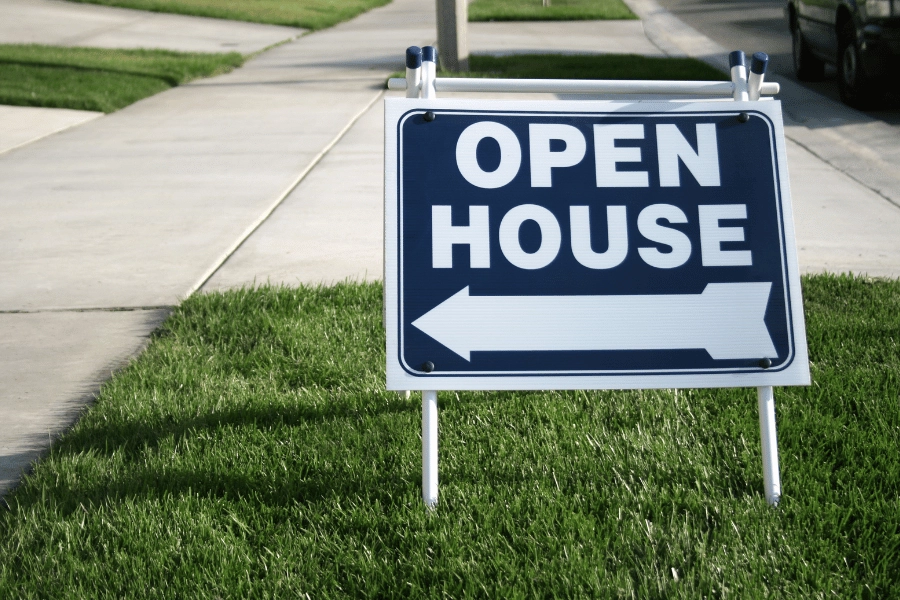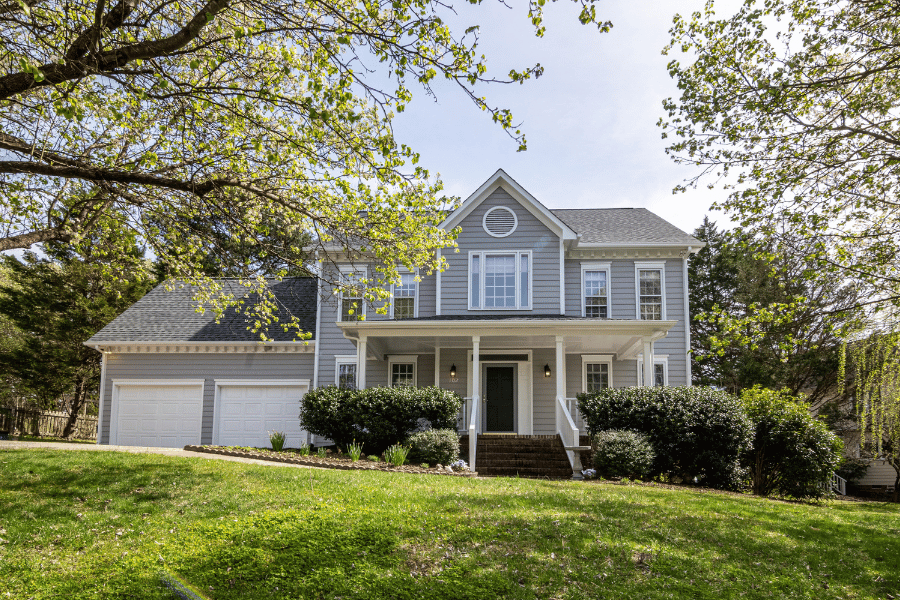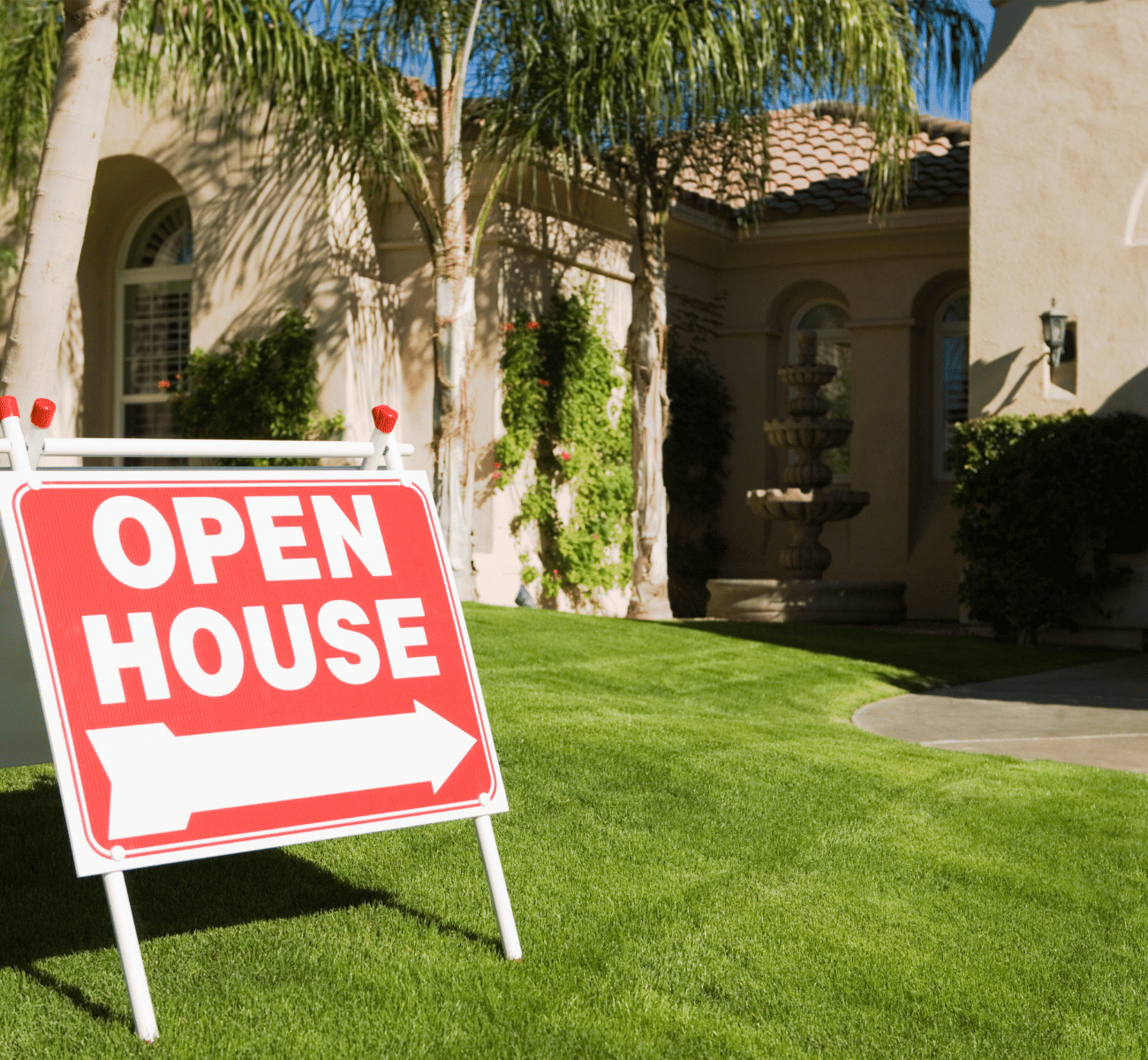Holding an Open House
What is an Open House in Real Estate? Here are seven things you need to know, as well as the pros and cons, before holding an open house!
In real estate, an open house is an event where prospective buyers can tour a home listed for sale. Open houses are typically held on weekends (when many buyers do not work and have time to tour homes), although they can also be held during the week.
Open houses can be powerful tools when executed strategically, but they're not one-size-fits-all solutions. Some properties sell within days without ever holding an open house, while others benefit tremendously from the exposure and urgency these events create.
The seller's listing agent usually holds open houses, though successful real estate agents typically have a team of people, and a team member usually will offer to hold the home open. This is because it's a great way for the team member to build their book of business by interacting with prospective buyers.
An open house represents a substantial investment of time, energy, and resources. Understanding the realities, both advantages and drawbacks, is essential before you decide to swing open your doors.
Whether you are a seller weighing your marketing options or working with Raleigh Realty to develop your home sale strategy in Raleigh, this guide will walk you through the seven critical considerations that will help you make an informed decision about hosting an open house.
From security concerns to marketing effectiveness, we will explore what you really need to know before you put out that "Open House" sign.
Here is what you need to know about open houses.
1. What Open Houses Actually Accomplish
Contrary to popular belief, open houses rarely result in the person who walks through your door becoming your buyer. National Association of Realtors data suggests that only 4% of homes sell to someone who first discovered the property at an open house. So why do they persist?
Open houses serve several strategic purposes beyond immediate sales. They create a sense of urgency and competition among potential buyers, generate buzz in the neighborhood, and provide realtors with opportunities to meet prospective clients. For sellers, they offer concentrated feedback about your home's appeal, pricing, and condition.
Open houses tend to be most beneficial for:
- Properties in highly desirable Raleigh neighborhoods (like Oakwood, Five Points, or North Hills) where foot traffic is naturally high
- Unique or high-end homes that benefit from in-person viewing to appreciate special features
- First-time listings are trying to generate initial buzz and multiple offers
- Homes that photograph poorly but show beautifully in person
- Properties in price ranges where buyers actively attend open houses in their search process
Open houses may be less valuable for:
- Homes that generate strong online interest and scheduled showings
- Properties in remote locations with limited foot traffic
- Luxury listings where serious buyers prefer private appointments
- Markets where your home is priced significantly above comparable properties
For real estate agents, open houses serve dual purposes. While they market your specific property, they're also prospecting tools for agents to build their client base. An experienced realtor might meet 10-20 potential clients at a well-attended open house, many of whom are early in their buying journey and not yet working with an agent.
.png)
2. Security Risks and Safety Considerations
Are open houses safe? This is perhaps the most pressing concern for sellers, and rightfully so. Open houses do carry inherent security risks that shouldn't be dismissed. You're essentially advertising that your home will be accessible to strangers, and while incidents are relatively rare, they do occur.
Common security concerns include:
- Theft: Small valuables, prescription medications, jewelry, and personal documents can disappear easily during the foot traffic
- Property damage: Accidental or intentional damage to your home or belongings
- Privacy invasion: Strangers accessing private areas, opening drawers, or photographing personal items
- Casing: Individuals attending to assess your home for future burglary
- Personal safety: Rarely, but seriously, safety issues for the realtor hosting the event
Before holding an open house, take these essential security measures:
Remove or lock away all valuables
This includes jewelry, cash, prescription medications, important documents, firearms, collectibles, and small electronics. Don't assume anything is too insignificant, even inexpensive items disappear.
Secure personal information
Lock filing cabinets, remove mail with personal information, hide bills and financial documents, and put away anything with your Social Security number, bank account information, or passwords.
Restrict access to certain areas
Consider locking master bedroom closets, home offices, or other spaces with personal items. Your realtor should respect these boundaries while still showcasing the home effectively.
Use sign-in sheets
Require all attendees to provide their name and contact information. While this won't prevent all problems, it creates accountability and helps your realtor follow up with genuine prospects.
Consider security cameras
If you have a security system, ensure it's active. Some sellers install temporary cameras during open houses for additional peace of mind.
Take your pets elsewhere
Beyond safety for your animals, removing pets eliminates concerns about them escaping or having accidents during the event.
Have two realtors present
For larger homes or higher-traffic events, having two agents present significantly improves security and ensures no one is in the home unsupervised.
Ask neighbors you trust to keep an eye on your home
If you have neighbors you trust, ask them to attend your open house or keep an eye on your home during the time when the open house is scheduled. If they notice any suspicious activity, they can alert you right away.

3. Preparing Your Home
If you think your home is "showing ready" for individual appointments, understand that open houses require an additional level of preparation.
When multiple people tour simultaneously, flaws become more noticeable, comparisons happen in real-time, and your home competes not just with other listings but with the expectations visitors bring from previous open houses that day.
Deep cleaning to a higher standard
Open houses demand spotless homes. Hire professional cleaners if needed, and focus on often-overlooked areas like baseboards, ceiling fans, window tracks, and grout lines.
Depersonalize thoroughly
Remove family photos, personal collections, political or religious items, and anything that might distract buyers from envisioning themselves in the space.
Address all minor repairs
That loose cabinet handle or sticking door you've ignored? It matters more during an open house when buyers tour with heightened scrutiny.
Create an inviting atmosphere
Consider fresh flowers, subtle background music, appropriate lighting, and yes, even the cliché of fresh-baked cookies or coffee can create a welcoming environment that encourages lingering.
Maximize curb appeal
First impressions happen before people enter, which is why curb appeal is essential. Ensure your lawn is manicured, walkways are clean, and the entrance is inviting. In Raleigh's spring season, capitalize on blooming flowers and landscaping.
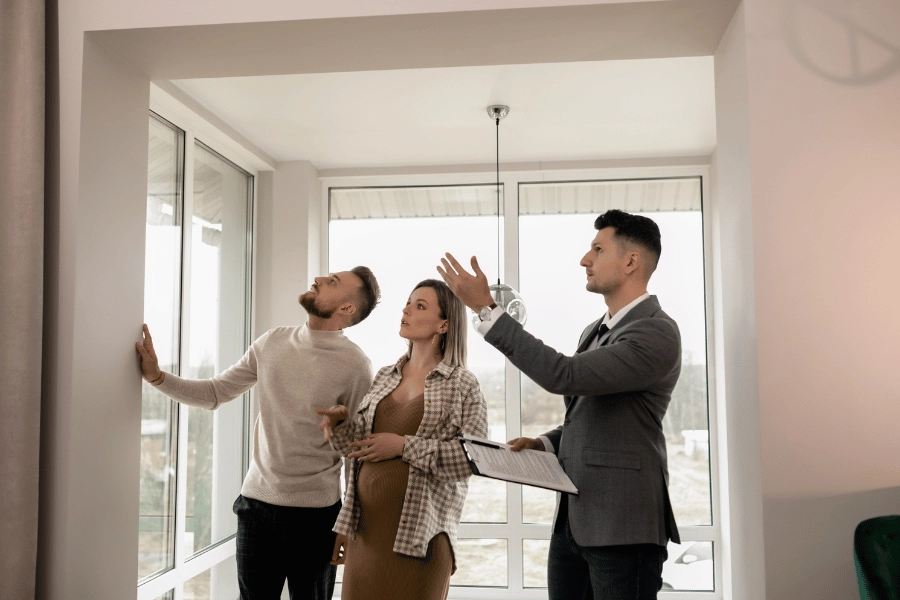
4. The Best Time to Hold an Open House
The timing of your open house can dramatically affect attendance and outcomes. Several factors influence optimal timing, including the time of year and day of the week.
Spring (March-May) is traditionally the strongest seller's market in Raleigh, with families wanting to move before the school year ends. Fall (September-October) is the second-best window. Summer can be slower due to vacations, while winter holidays present obvious challenges.
Sunday afternoons (1-4 PM) traditionally draw the most traffic, though Saturday open houses (11 AM-2 PM) can also be effective. Some agents find success with Thursday evening "broker open houses" that target other real estate professionals.
The most impactful open houses happen within the first weekend of listing. This creates urgency, capitalizes on maximum online interest, and can generate competing offers.
Check local calendars for major Raleigh events (NC State or UNC home games, downtown festivals, etc.) that might affect attendance. Sometimes avoiding conflicts is wise; other times, events that draw people to your area can increase foot traffic.
5. Marketing Your Open House Effectively
Marketing is the key to a successful open house. Since an open house requires promotion across multiple channels, there are more ways than one to market an open house beyond the yard sign.
- Social media marketing: Your realtor should promote on Facebook, Instagram, and local Raleigh community groups
- Email campaigns: Distribution to other realtors and their client lists
- Traditional signage: Directional signs throughout the neighborhood (following Raleigh city regulations)
- Neighborhood outreach: Personal invitations to neighbors, who often know potential buyers
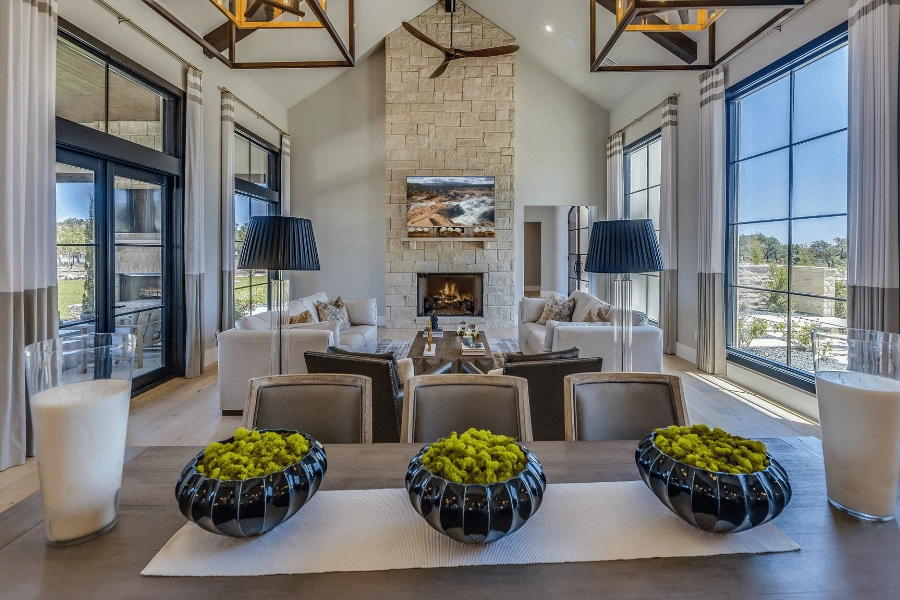
6. The Pros and Cons of Open Houses
The pros and cons of open houses in real estate will vary depending on whether you're a buyer or a seller.
Open House Pros if You Are a Buyer
An open house does not require an appointment, so the buyer can show up during the open house timeframe and view the home. This is different than a private showing, which involves setting up an actual appointment to tour the home.
Attending an open house allows one to understand bedroom dimensions, floorplan layout, backyard size, and other amenities that the home offers.
Open House Cons if You Are a Buyer
Depending on the home, some open houses can attract many prospective buyers, causing distractions when visiting the home. Giving yourself the time to assess whether or not you want to move forward with a home while surrounded by a sea of competing buyers may make it challenging to make a clear decision.
Attending several open houses in a day may cause unnecessary stress. It is best to schedule two or three private showings in a row and give yourself ample time to tour each one rather than running from one open house to the next within a tight timeframe.
Open House Pros if You Are a Seller
Before holding an open house, a Realtor typically advertises the open house as much as possible via social media, print/digital ads, street signs, etc. This increases your home's marketing exposure and helps spread the word about the listing.
Open houses can also attract a wide range of buyers, giving your listing more visibility among prospective purchasers. However, it is important to note that this same level of marketing and exposure can be done for the listing even if there isn't an open house.
Open houses can also provide immediate feedback since your realtor can gather real-time reactions and concerns from multiple prospects. This is also a great way to alert neighbors who might refer friends or family looking for a home in the area.
Open House Cons if You Are a Seller
Open house attendees may not be qualified buyers and are just “browsing.” Attendees do not typically need to register or have mortgage pre-approval or prequalification before attending.
Not only do open houses require extensive cleaning and staging beyond normal showing standards, but they also disrupt the seller. Sellers must vacate the home during an open house, arrange pet care, and potentially adjust plans.
There can be an increased risk of security issues and privacy invasion. Inviting strangers into your home carries inherent risks. Strangers examining your belongings, lifestyle, and personal spaces is an additional concern.

7. Open House Alternatives
If security concerns or other factors make you hesitant about traditional open houses, consider these alternatives:
- Virtual open houses: Live-streamed or pre-recorded tours that provide accessibility without physical security risks
- Broker-only open houses: Exclusive events for real estate professionals who bring qualified clients later
- Appointment-only intensive showing days: Scheduled back-to-back showings, creating similar energy without the open-door policy
- Private showings with strict pre-qualification: Requiring mortgage pre-approval letters before scheduling
Methodology
Data was sourced from the National Association of Realtors to determine the best things to know before hosting an open house.
FAQs
What is the purpose of an open house?
The ultimate goal of an open house is to secure a buyer for the home. An open house allows prospective buyers to tour the property at their leisure, either independently or guided by a Realtor.
Are Open Houses Effective?
Many years ago, before the age of digital technology, buyers had limited ways of seeing a home besides attending an open house or a private showing. Prospective buyers would review ads for homes on the market in the newspaper or drive around on a Sunday afternoon looking for open house signs.
However, buyers now have various methods of digitally touring the home, making open houses less effective than they once were. If a buyer is interested in offering your home, they will set up a private showing request, giving them a quiet, non-chaotic environment to walk through the home and make an offer carefully.
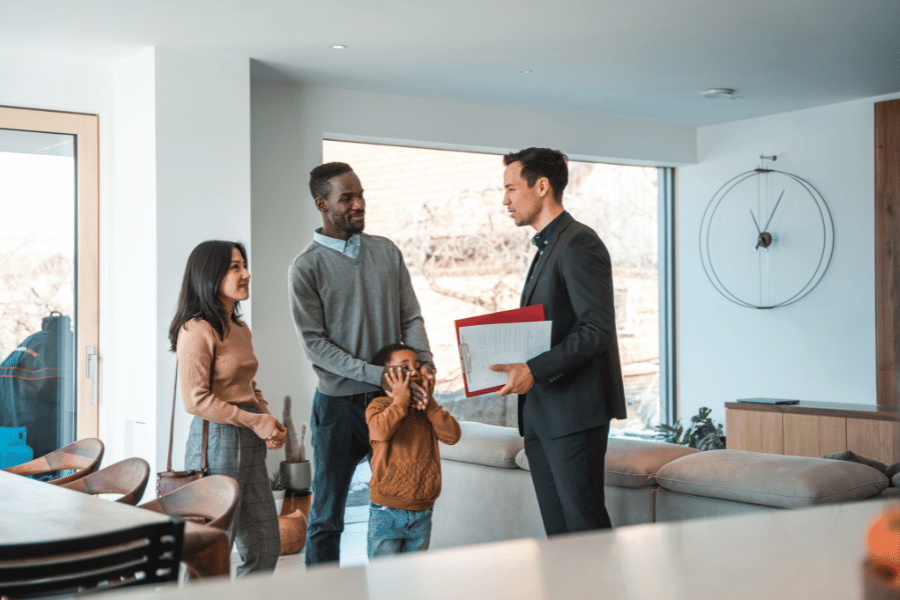
How do you prepare for an Open House?
Try eliminating as many personal items as possible when preparing for an open house. The less cluttered your home is, the more open and spacious it will appear.
Removing personal items, such as family photos, toiletries, etc, is also advised. When a prospective buyer walks through a home, they try to envision themselves living in it. Seeing your family photos or personal items throughout the home will make it harder for them to picture the home as their own.
Do You Need a Realtor to Attend an Open House?
If you are selling your house on your own without the help of a Realtor, it is not required to have a Realtor at your open house. If you sell your home through a Realtor, they will be present during the open house timeframe. In nearly all situations, sellers are not advised to be present during an open house, so you will most likely need to make plans when the open house is scheduled.
If you are a buyer who is working with a Realtor, it is strongly advised to attend the open house with your agent, as they can guide you through the home, answer questions, and assist in drawing up paperwork in the event you choose to make an offer on the home. If you are not working with a Realtor, you can attend the open house independently.
Why Do Realtors Have Open Houses?
A Realtor will hold an open house with the ultimate intent of finding a buyer for your home. However, some Realtors may also host open houses to market themselves and their businesses.
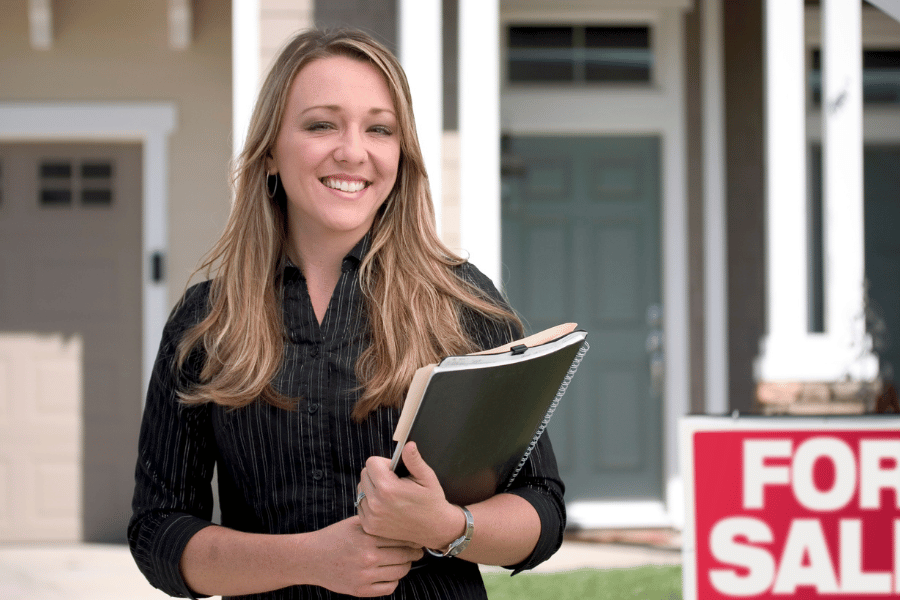
Open Houses Final Thoughts
Although an open house certainly will not hurt your chances of selling a home, other methods may prove to be less time-consuming and more cost-effective when selling a home.
An open house makes sense when your property's characteristics, market conditions, and personal circumstances align favorably, and when you have taken appropriate security precautions to protect yourself and your belongings.
Whether or not you hold an open house, professional photography, compelling listing descriptions, strategic pricing, digital marketing, and strong agent networking remain essential.
If you're considering selling your Raleigh home and wondering whether an open house is right for you, let's have a conversation. Contact the experts at Raleigh Realty because the best marketing strategy is one that sells your home quickly.
